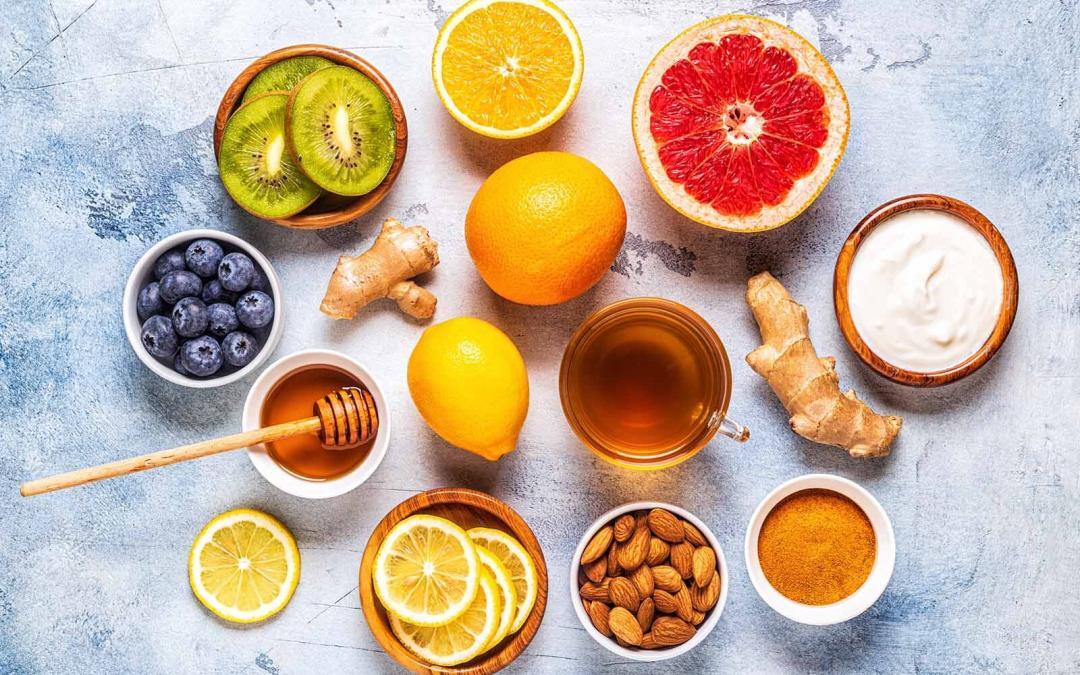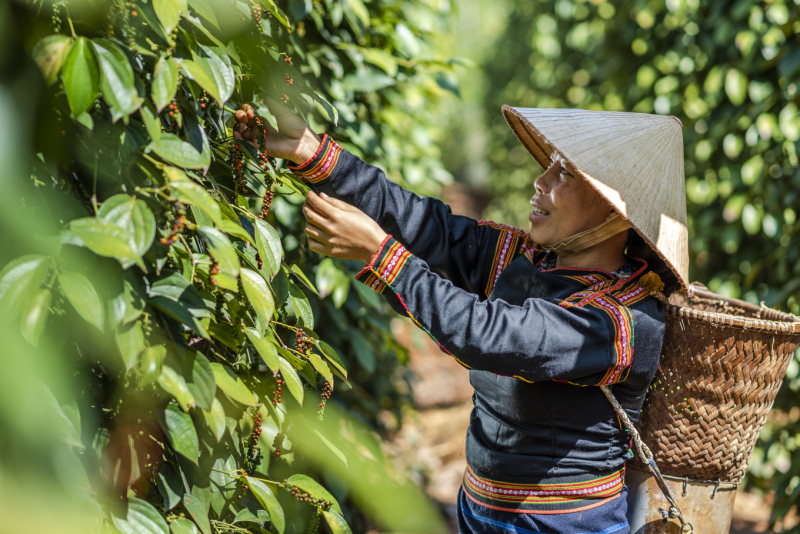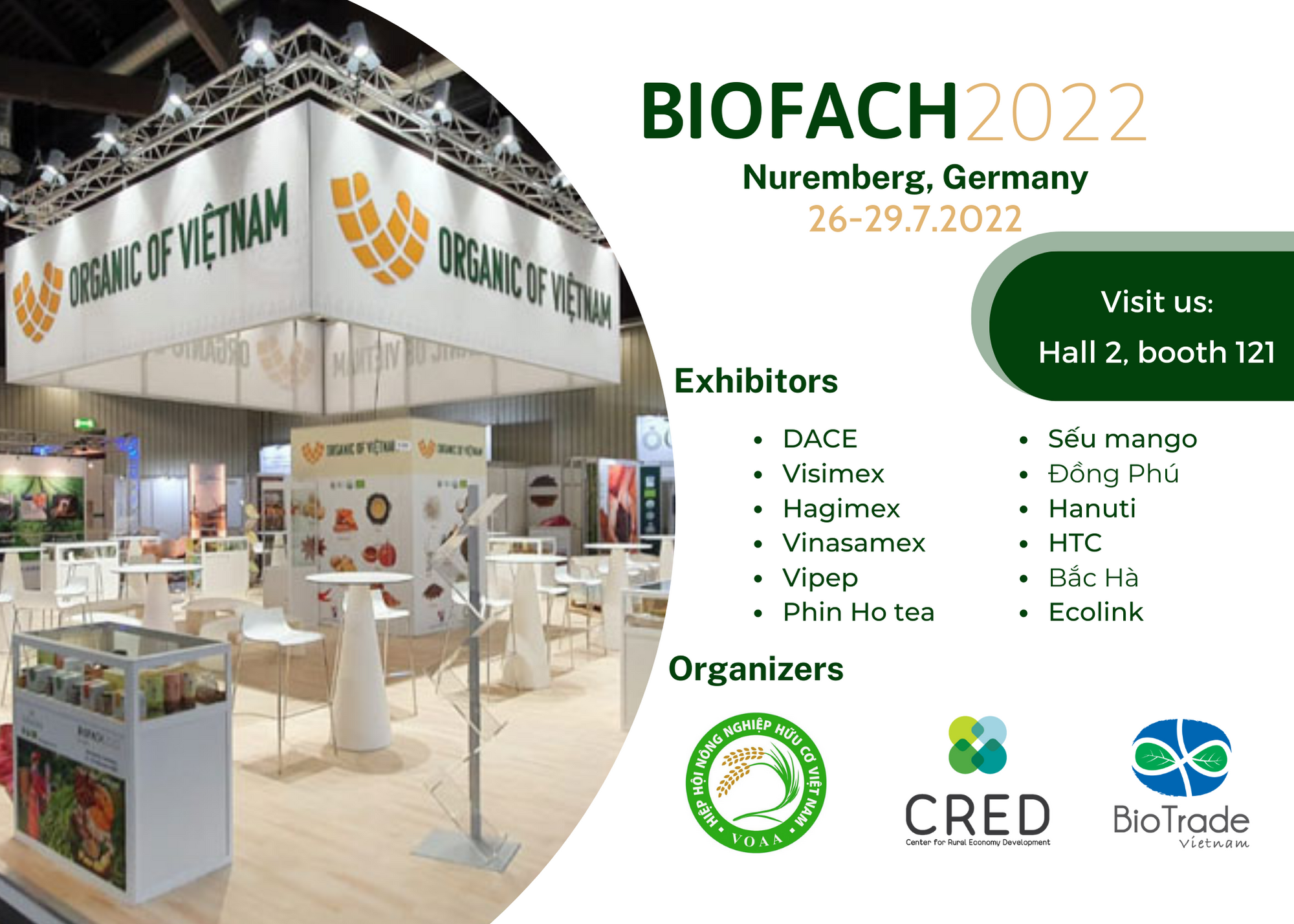1. What are mandatory requirements for natural food additives?
The general food law
All food products and their ingredients must comply with Regulation (EC) No 178/2022. This regulation lays down the general principles and requirements of food law, establishes the European Food Safety Authority and lays down procedures in matters of food safety. The General Food Law defines three principles: transparency, risk analysis and the precautionary principle. According to these principles, the European legislation requires the implementation of procedures based on Hazard Analysis and Critical Control Points (HACCP).
Those products that fail to comply with the food safety requirements stipulated in the law will be notified in RASFF, the Rapid Alert System for Food and Feed of the European Union. The information exchanged through RASFF can result in products being recalled from the market, and this would represent a burden for your buyer as well as for your company.
Authorized food and the new transparency regulation
Authorization of foodstuffs in the EU is regulated by different legislations, depending on the classification of the food. Regulation (EC) No 1331/2008 determines a common authorization procedure (CAP) for food additives, food enzymes and food flavorings. The CAP describes the procedural arrangements to update the corresponding Union lists.
The new transparency regulation to ensure further transparency of the risk assessment in the food chain became applicable on 27 March 2021. Remember that the authorization of new products is an extensive and expensive process that normally needs the involvement of large companies. These large companies may nevertheless be your potential buyers, and being aware of upcoming product authorisations can help you predict the market demand for new ingredients.
Food additives regulation
Regulation (EC) No 1333/2008 lays down detailed rules on food additives. Annex II lists the food additives that are approved for use in foods and the conditions of use, Annex III lists the food additives approved for use in food additives and their conditions of use. Food additives are used, among others, to preserve, color and stabilize food during its production, packaging or storage.
Each food additive that is approved in the European Union gets an E-number assigned. Having an E-number means that an additive has passed safety tests and is authorized for use. To check the authorized additives and their uses, consult the Additives Database of the European Union
Flavoring legislation
Regulation (EC) No 1334/2008, also known as the EU flavoring legislation, establishes the general requirements of flavorings and certain food ingredients with flavoring properties for use in and on foods. Natural ingredients such as oleoresins, essential oils and some extracts are classified as flavorings and must comply with this regulation.
For additional information on the European Flavoring legislation, visit the European Flavour Association website and read the Guidance Document
Novel food regulation
The Novel Food Regulation (EU) 2015/2283 defines novel foods as foods that were not being consumed to a significant degree by humans in the European Union before 15 May 1997.
When in doubt as to whether your product or its raw material is recognized as a food within the EU, check the Novel Food Catalogue based on the Union list of novel foods
Contaminants
Contaminants are substances that have not been intentionally added to food but may be present in it as a result of the various stages of its production, processing or transport. They can also result from environmental contamination. As contaminants may pose a risk to human health, the European Union has established different regulations to control their presence in food. The regulated substances include process contaminants like acrylamide and furan; natural toxins like mycotoxins and alkaloids; environmental pollutants like brominated flame retardants, dioxins and polychlorinated biphenyls; and metals.
The main EU legislation for contaminants is:
- Regulation 315/93/EEC on procedures for contaminants in food
- Regulation 1881/2006 on maximum levels for certain contaminants in food
Purity criteria for food additives with an E-number are stipulated on a case-by-case basis in the Annex of Regulation (EU) No 231/2012.
Pesticide residues
The maximum residue levels (MRLs) for pesticides on food are specified in Regulation (EC) No 396/2005. The limits on raw materials also apply proportionally to the derivative products, such as extracts and food additives.
Remember that extraction processes may potentialise even minimal pesticide residues present in the raw material of your product. You should therefore carefully monitor your laboratory analysis, to ensure compliance with the MRLs. You can also check the MRL database to identify the MRLs that are relevant to your product.
Extraction solvents
For food additives with an E-number, the specifications for the use of extraction solvents are stipulated on a case-by-case basis in Regulation (EU) No 231/2012. The purity criteria found in this regulation establish maximum solvent residue levels for each solvent, singly or in combination.
The use of extraction solvents for all other foodstuffs and food ingredients is regulated by Directive 2009/32/EC. Annex I contains a list of the authorized extraction solvents for use in food and the conditions of use. For example, sulphur dioxide extraction is not authorized.
Remember that because of the strict purity criteria, and to avoid issues with solvent residue levels, the industry is moving towards solvent-free substances and many buyers prefer to buy extracts from steam distillation.
Classification, labelling and packaging
The Globally Harmonized System of Classification and Labelling of Chemicals (GHS) was developed to standardize and harmonize the management of global chemicals. In the EU, this is implemented through Regulation 1272/2008 on the classification, labelling and packaging (CLP) of substances and mixtures. The CLP regulation applies to food additives and flavors, but not to finished foodstuffs.
The classification and labelling database (C&L Inventory) contains classification and labelling information on notified and registered substances received from manufacturers and importers. The database is available from the European Chemicals Agency (ECHA) website and also includes the list of harmonized classifications. Some natural food additives included in the database are annatto, peppermint essential oil and guar gum.
Besides CLP, packaging materials must also comply with Regulation (EC) No 1935/2004 on materials and articles intended to come into contact with food. This regulation aims to prevent contamination of food to guarantee the safety of consumers.
CITES – Endangered species protection
The Convention on International Trade in Endangered Species of Wild Fauna and Flora (CITES) is an international treaty to protect the trade of endangered species of animals and plants (or parts or derivatives made thereof). The EU wildlife legislation, Regulation (EC) 338/97, is based on CITES and includes a double-checking system involving export and import controls at the country of origin and at the EU level.
As the natural food additives industry is constantly looking for plants to substitute synthetic ingredients, this regulation has obligations for both exporters and importers in the sector. Smaller European companies have different ways to approach CITES-related issues. Some companies avoid using raw materials registered in CITES, while others require that species listed in CITES come from cultivation instead of wild collection. In any event, you as a supplier are responsible for having the necessary documentation. European companies will often cooperate with you to gather information and ensure compliance with the EU regulation.
To find out if your product is subject to the CITES regulation and to have a better understanding of this import requirement, visit Access2Markets, the previously mentioned EU trade information portal.
Access and Benefit Sharing (ABS)
The Nagoya Protocol on Access and Benefit Sharing aims at sharing the benefits that arise from the utilisation of genetic resources in a fair and equitable way. The European Union is a signatory of the protocol, meaning that the Union and the countries at the individual level are legally obliged to implement mechanisms to comply with its principles. Regulation EU 511/2014 is the implementation of the Nagoya Protocol.
As the Nagoya Protocol is implemented differently in the regulations of each country, European buyers expect their suppliers to know the local regulatory framework relating to ABS and to cooperate to facilitate their compliance. Some European companies may require their suppliers to obtain the Internationally Recognized Certificate of Compliance (IRCC) issued by the Access and Benefit Sharing Clearing House (ABSCH). This certificate ensures that companies have legal access to genetic resources according to the Nagoya Protocol, and it is often asked from suppliers from developing countries where a high risk of non-compliance with the ABS regulation has been identified.
2. What additional requirements and certifications do natural food additives buyers often ask for?
Quality management and food safety certifications
European buyers of natural food additives often require their suppliers to have the ISO 9001 certification on quality management systems and the ISO 22000 certification on food safety management. For several European buyers the implementation of standards and certifications recognized by the Global Food Safety Initiative (GFSI) is increasingly becoming a minimum requirement, the most popular ones being FSSC 22000, BRCGS and IFS.
For some buyers, especially for large European companies, quality management requirements also apply to the production of the raw materials. In such cases, buyers want to ensure that the raw material used to produce the corresponding natural food additive is cultivated under Good Agricultural Practices (GAP). The Farmer Sustainability Assessment (FSA) of the SAI Platform is among the popular tools used by European companies to evaluate quality management in raw materials production.
Sustainability requirements
Sustainability is a crucial and cross-cutting topic in Europe. Companies of all sizes are integrating sustainability into their business strategy, driven not only by their own conviction or by consumer demands, but also by upcoming changes in legislation, aiming to make sustainability the norm. An example of these legislative changes is the proposal for a Directive on corporate sustainability due diligence, which was adopted by the European Commission in February 2022. The new rules will ensure that businesses address adverse human rights and environmental impacts of their actions, including their value chains inside and outside Europe. This directive proposal is in line with the Farm to Fork strategy, part of the European Green Deal. The Farm to Fork strategy aims for fair, healthy and environmentally friendly food systems across Europe.
For several European companies of the natural food additives sector, sustainability is important and is becoming part of every corporate decision. 90% of the 34,000+ European companies of the food ingredients sector surveyed in 2022 by Fi Global Insights agreed that governments should establish a minimum legal standard for corporate sustainability and due diligence; 81% said businesses should be penalized if they did not adhere to the minimum legal standard for corporate sustainability and due diligence.
Among the most popular certifications and social standards applicable to the natural food additives sector are Sedex/ SMETA, BSCI (Business Social Compliance Initiative), Fairtrade and Fair for Life. Ecovadis and the Union for Ethical Biotrade (UEBT) are additional certifications relevant for certain ingredients.
In terms of environmental sustainability, certifications like Fair Wild and Rainforest Alliance are amongst the most common ones. Each European buyer may have a different position towards certifications: some companies prefer to implement their own auditing by visiting their suppliers, while others require their suppliers to get certified.
Although the above-mentioned certifications are the most commonly used in the natural food additives industry, requirements may vary by buyer. Therefore, before getting certified you should talk to your buyers and verify their needs.
There are also industry-specific initiatives and voluntary frameworks to which companies belong, such as the Sustainability Charter of the International Fragrance Association (IFRA) and the International Organization of the Flavour Industry (IOFI). Another common practice is the implementation of codes of conduct for suppliers. These codes of conduct are frequently based on the UN Global Compact and the Sustainable Development Goals.
Most important certifications requested by buyers in the natural food additives sector
- Food Safety Systems Certification (FSSC) 22000: Applied in EU-wide but mainly in The Netherlands, Italy, France, Spain, Switzerland and Scandinavia.
- British Retail Consortium Global Standards (BRCGS): Most used in UK, France and Germany
- International Featured Standards (IFS): Applied in EU-wide but most used in France and Germany
- FairWild: Most use in UK, France and Germany
- Rainforest Alliance: Applied in EU-wide but mainly in Western and Northern Europe.
- Sedex Members Ethical Trade Audit (SMETA): Most European buyers recognise the SMETA audit as a valid assessment, but it is mainly popular in UK and Germany
- Business Social Compliance Initiative (amfori BSCI): Most used in Germany and Neitherlands
- Fairtrade and Fair for Life: Most used in UK, Germany and Benalux (Belgium, Neitherlands and Luxembourg)
- EU Organic: Applied in EU-wide but all European countries have their own domestic organic labels.
Documentation
The documentation that your buyer will ask you to provide is not only used to evaluate the compliance of your product with European regulations, but also to assess the fullfilment of the agreed purchasing specifications, in line with the requirements of the final industry user. Documentation requested will therefore depend on the final client requirements as well as on the market segment where you are selling your natural food additive. There are, however, some essential documents you will be asked to submit:
Other documents or information that may also be requested are:
- Allergens declaration
- Radioactive-free certification
- Heavy metals declaration
- Non-GMO certificate
- Gluten-free
Check this natural flavoring Technical Data Sheet containing allergen data and non-GMO status information.
Up-to-date certifications on quality management systems, food safety, organic, fair trade, kosher, halal and others must also be submitted, according to the buyer requirements.
Several buyers distribute a supplier questionnaire to evaluate new suppliers. These questionnaires ask for information on e.g. production specifications, CITES documentation, toxicology, raw material origin and production details (use of pesticides, fertilizers, size of farm and crop, use of water, etc.), effectiveness data, packaging materials and processing activities.
You can Register and log in for free on 1-2-Taste, a B2B platform for natural food ingredients where you can review and download the product and technical specifications and the safety data sheets of hundreds of ingredients. It is also a good tool to monitor prices and find potential buyers and/or competitors
3. What are the requirements and certifications for natural food additives niche markets?
Organic production and certification
For some European companies, organic certification is a minimum requirement. Some companies focus on sourcing only organic ingredients and foodstuffs, while others offer both conventional and organic products. Organic certification is especially relevant among buyers that are looking for clean label ingredients.
In the European Union, a product can have the organic production logo if it has been certified, and only if at least 95% of the ingredients from agricultural origin are organically produced. The new organic regulation became applicable on 1 January 2022. As in the previous regulation, only certain food additives may be used: check the positive list of additives (Part A of Annex V).
The new organic regulation represents an opportunity for suppliers in developing countries, as greater flexibility on the origin of the products was introduced. Under the previous regulation products with the label sign ‘EU Agriculture’ could contain up to 2% of non-EU ingredients; the new regulation increased this percentage to 5%.
Halal and kosher
Having kosher and halal certification can represent a competitive advantage and be attractive to European buyers, as these certifications are on the rise. However, they are still a requisite of niche markets and are not a common requirement in Europe. Being kosher- and halal-certified can send a positive signal to your buyers in terms of your quality processes, as these standards require adherence to strict hygiene practices.
(Source: CBI News Letter 2023, May)







